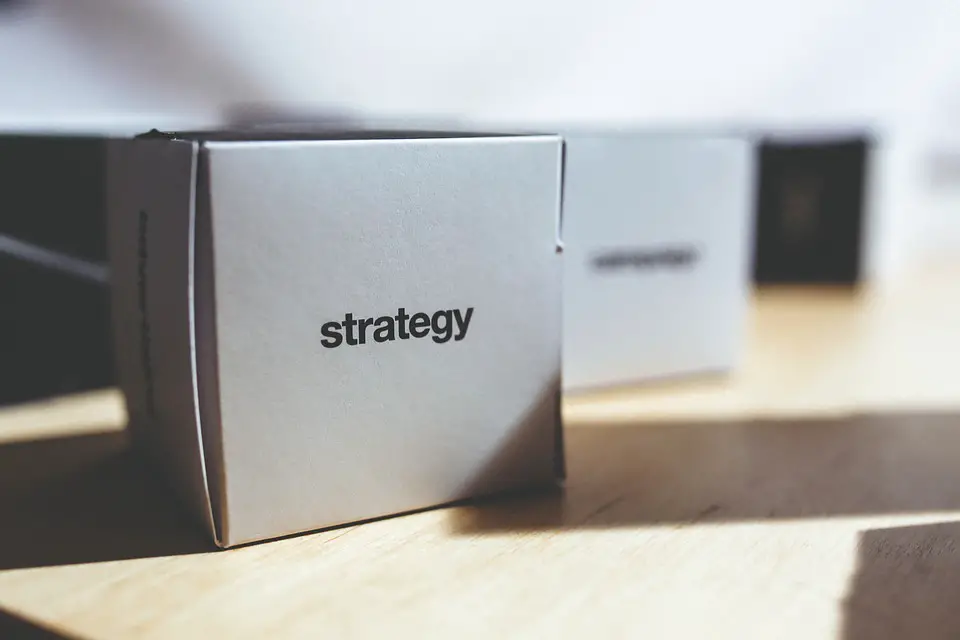Welcome to the wild world of wealth-building! If you’ve ever thought about making money work for you instead of the other way around, then buckle up, my financially curious friend. We’re diving headfirst into the golden pool of financial literacy, where knowledge is the lifeguard and ignorance is the kid who just swallowed a gallon of pool water. Spoiler alert: it’s not pretty.
In 2025, financial literacy isn’t just a buzzword you read in a self-help book while sipping overpriced lattes; it’s your ticket to a life where money isn’t just a means to an end but a powerful tool to unlock doors you didn’t even know existed. So, grab your metaphorical key, because we’re about to unlock the vault of wealth-building opportunities!
What the Heck is Financial Literacy Anyway?
Let’s break it down, shall we? Financial literacy is all about understanding how money works—how to earn it, manage it, invest it, and grow it. It’s like learning to ride a bike, but instead of balancing on two wheels, you’re balancing your budget, savings, investments, and that ever-elusive dream of financial freedom.
Why Should You Care?
If you’re still on the fence, let’s talk turkey. Financial literacy is the difference between living paycheck to paycheck and sipping piña coladas on a beach in Bali. It’s the difference between making your money work for you versus letting it sit in a savings account earning a whopping 0.002% interest (thanks, inflation!).
The Wealth-Building Mindset
Before we dive into the nitty-gritty of tactics, let’s discuss a mindset shift. To build wealth, you need to start thinking like a millionaire. And no, I don’t mean wearing sunglasses indoors or driving a flashy car you can’t afford.
Millionaire Mindset Hacks:
-
Invest in Yourself: Your brain is your most valuable asset. Read books, take courses, and learn about investing, budgeting, and financial planning. You wouldn’t go to battle without armor, so why go into life without financial knowledge?
-
Embrace Failure: Every financially successful person has a trail of failures behind them. Don’t let setbacks discourage you; let them teach you.
- Think Long-Term: Wealth isn’t built overnight. It’s like planting a tree; it takes time to grow. Remember, Rome wasn’t built in a day, and neither is your investment portfolio.
Building Blocks of Financial Literacy
Alright, let’s dig into the juicy stuff—the concrete steps you can take to improve your financial literacy and, by extension, your wealth.
1. Understand Budgeting Like a Boss
Budgeting isn’t just a fancy word for restricting your life to rice and beans. It’s about understanding where your money goes and making it work for you. Here’s how to create a killer budget:
-
Track Your Spending: Use apps like Mint or YNAB (You Need a Budget) to see where your cash is flying off to. Spoiler: that daily latte habit can add up faster than a kid’s sugar rush.
-
The 50/30/20 Rule: Allocate 50% of your income to needs, 30% to wants, and 20% to savings and debt repayment. It’s a simple, effective way to keep your finances in check.
- Cut Unnecessary Expenses: Look at your budget and ask yourself, “Do I really need that subscription to the ‘Monthly Pickle of the Month’ club?” If it’s not bringing you joy, cut it out!
2. Dive into Investing
Investing can sound as scary as bungee jumping off a cliff, but it’s actually a key component of building wealth. Here’s your crash course:
-
Start Small: You don’t need to be a Wall Street tycoon to start investing. Platforms like Robinhood or Acorns let you start with as little as $5.
-
Diversify Your Portfolio: Don’t put all your eggs in one basket (or all your savings in Dogecoin). Spread your investments across stocks, ETFs, and real estate.
- Understand Risk: Higher potential returns come with higher risks. Be honest with yourself about how much risk you’re willing to take. If you can’t sleep at night because of a stock’s volatility, it’s time to reevaluate.
3. Master Debt Management
Let’s face it: debt can be a real party crasher. However, it doesn’t have to be the end of the world. Here’s how to turn your debt into a manageable houseguest instead of an uninvited squatter:
-
Snowball vs. Avalanche Method: The snowball method focuses on paying off your smallest debts first, giving you quick wins. The avalanche method tackles the highest-interest debts first, saving you money in the long run. Choose your fighter wisely!
-
Negotiate Your Rates: Call your credit card companies and ask for lower interest rates. It’s like asking for a discount on your groceries—sometimes, it works!
- Consolidate Your Debt: If you have multiple debts, consider consolidating them into one loan with a lower interest rate. It simplifies your payments and often saves you money.
4. Build an Emergency Fund
Picture this: your car breaks down, and you have to choose between calling a tow truck or eating ramen for the next month. Not fun, right? That’s where an emergency fund comes in. Aim for 3-6 months’ worth of living expenses saved up. Here’s how to create one:
-
Automate Savings: Set up automatic transfers to a high-yield savings account. You won’t miss it if you don’t see it!
-
Start Small: Even $10 a week adds up. Don’t let the fear of not saving enough stop you from saving anything.
- Use Windfalls Wisely: Tax refunds, bonuses, and gifts? Boom! Put that money into your emergency fund instead of a new pair of shoes.
5. Get Educated on Taxes
Ah, taxes—the necessary evil we all love to hate. But understanding them can save you a boatload of cash:
-
Know Your Deductions: Familiarize yourself with what you can deduct. Home office? Check. Charitable donations? Check. Don’t leave money on the table!
- Consider Professional Help: If your taxes are more complex than a Rubik’s cube, consider hiring a tax professional. It might cost you upfront, but it can save you thousands in the long run.
The Power of Financial Literacy in Action
Now that you’re armed with knowledge, let’s talk about real-world applications. Meet Jane, a regular gal who transformed her financial life by embracing financial literacy.
Jane’s Journey:
-
Before Financial Literacy: Jane was living paycheck to paycheck, drowning in credit card debt, and had no idea how to invest. Her idea of saving was keeping loose change in a jar.
- After Financial Literacy: After taking a budgeting course and educating herself on investing, Jane created a budget, paid off her debt, and started investing in her first index fund. Fast forward a year, and she’s not only debt-free but also building wealth—one investment at a time.
Conclusion: Unlock Your Wealth Potential
There you have it, folks! Financial literacy is your key to unlocking a treasure chest of wealth-building opportunities. It’s not just about knowing the numbers; it’s about changing your mindset and taking actionable steps toward financial freedom.
So, what are you waiting for? Dive into the world of financial literacy and take control of your financial future. Remember, money doesn’t have to be a four-letter word—when you understand it, it becomes your best friend. And who wouldn’t want a bestie that can help fund your beach vacation?
Now get out there and start building that wealth!






